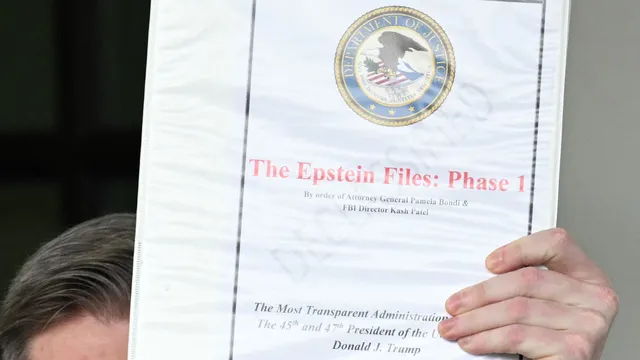
DOJ and FBI confirm Epstein died by suicide, no client list found
2025-07-07 19:14- A memo from the DOJ and FBI confirmed that Epstein died by suicide in 2019.
- The memo stated there is no evidence that Epstein maintained a client list of associates he blackmailed.
- These findings aim to dispel widespread conspiracy theories surrounding Epstein's actions and associations.
Express your sentiment!
Insights
In the United States, a memo released by the Department of Justice (DOJ) and the FBI revealed findings from a comprehensive review of the investigative files related to Jeffrey Epstein. This memo, published on July 7, 2025, confirmed that Epstein, who died in his prison cell in August 2019, took his own life, backing previous conclusions made by medical examiners and investigators. It also stated unequivocally that there was no evidence suggesting Epstein maintained a 'client list' of associates he blackmailed for personal gain. The investigation aimed to address years of speculation and conspiracy theories surrounding Epstein's case, particularly among right-wing commentators and certain activists, who alleged government cover-ups regarding Epstein's connections to powerful individuals. Attorney General Pam Bondi had previously made public statements regarding a purported 'client list' and indicated that investigations were ongoing. However, the recent findings directly contradict her earlier claims, revealing that after an exhaustive review of all available materials, the DOJ and FBI could not substantiate any claims of a list or blackmail scheme involving Epstein. The memo emphasized that continuing to propagate unfounded theories about Epstein would not aid in combating child exploitation or obtaining justice for his numerous victims. The investigation also pointed out that there are over 1,000 identifiable victims of Epstein's exploitation, highlighting the extensive damage caused by his actions. Administrators justified the lack of further document release by stating it was counterproductive to perpetuate conspiracy theories surrounding Epstein and his associates. The DOJ memo reflects a careful balancing act between the need for transparency concerning Epstein's crimes and maintaining the integrity of ongoing investigations related to his victims. This comprehensive review arrives amidst continued scrutiny and demand for information about Epstein's connections and allegations, particularly from online communities and public figures who follow these narratives closely. Despite the release of some documents earlier, many key figures in the conspiracy theory landscape have expressed dissatisfaction with the DOJ and FBI's conclusions, suggesting that further investigation is warranted. By reinforcing these findings, the DOJ and FBI appear committed to upholding the integrity of their investigations while challenging the growing antenna of conspiracy theories that have surfaced in the wake of Epstein's demise.
Contexts
Jeffrey Epstein was a prominent figure whose connections to powerful individuals spanned various sectors, including politics, finance, and entertainment. His intricate web of relationships has been a focal point in discussions about privilege, influence, and the potential for criminality among the elite. Epstein cultivated his network through social events, philanthropic initiatives, and by creating opportunities for connections among the wealthy and powerful. This enabled him to gain access to some of the most influential figures in society, thereby raising questions about the ethical implications of these associations and the role they may have played in enabling his alleged criminal activities. Among his notable connections were individuals like former U.S. Presidents Bill Clinton and Donald Trump, prominent business leaders, and celebrities. Clinton, who flew on Epstein's private jet multiple times, has stated that he was unaware of Epstein's illegal activities. Trump acknowledged knowing Epstein but claimed they had a falling out long before Epstein's arrest. High-profile individuals in finance, such as Leslie Wexner, the former CEO of L Brands, had extensive financial ties to Epstein, which has led to scrutiny of how those relationships may have shielded Epstein from legal repercussions. Epstein's allure among the powerful also derived from his claimed wealth and expertise as a financier, although the true source of his fortune remains murky. He reportedly managed money for several wealthy clients and was linked to various ventures, one of which included a failed hedge fund. The exclusivity of his social gatherings attracted a spectrum of elites, leading to speculation that these connections afforded him a level of protection that allowed him to operate largely unchecked for years. This idea is compounded by the fact that some of his social gatherings included influential figures who may have been complicit or willingly blind to his activities, raising significant ethical questions about their integrity and judgment. The untimely death of Epstein in jail in 2019 further complicated the narrative surrounding his connections. It not only intensified the scrutiny of the relationships he maintained but also sparked numerous conspiracy theories regarding the lengths to which powerful individuals may go to protect their interests. The aftermath of his death has catalyzed numerous investigations into the implications of his relationships, prompting discussions about accountability and justice. As ongoing legal battles unfold involving Epstein's estate and the alleged victims, the impact of his connections continues to reverberate through various sectors, prompting societal reflection on systemic issues related to power, consent, and exploitation.